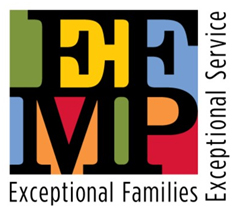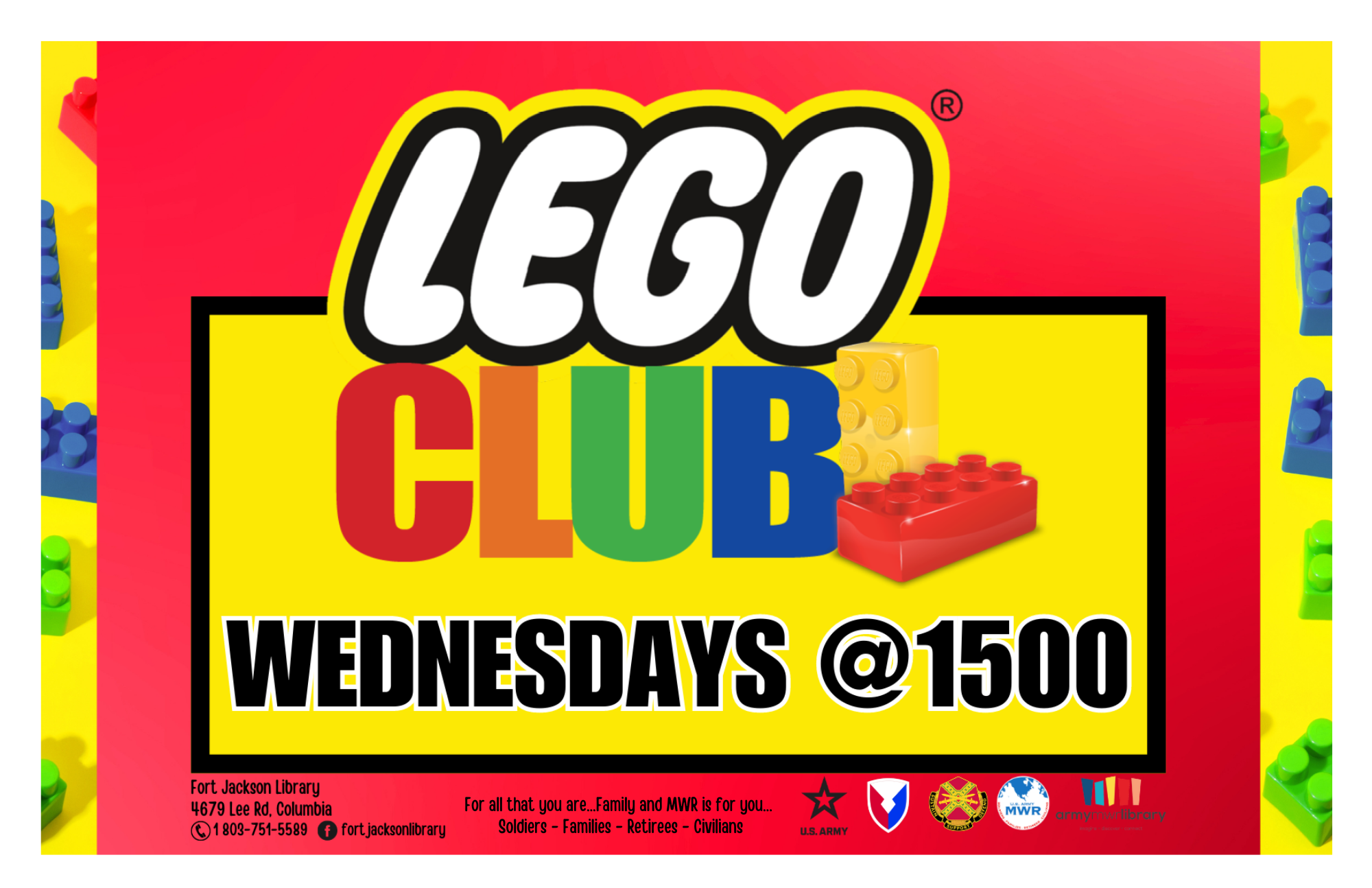- What School Support Services Provide
-
School Support Services provides information and assistance to military families concerning youth education and school issues. The School Liaison Officer develops partnerships to facilitate successful school transitions for military children and youth and collaborates with local schools, installation, and community organizations to foster positive educational experiences. For information about area public school districts, DDESS schools, private schools, homeschooling, scholarships and post-secondary opportunities, please visit the School Liaison Services website and/or call the School Support Services office at +1 (803)751-6150. The School Support Services office is located in the Joe E. Mann Building at 3392 Magruder Ave. Office hours are 8 a.m. to 5 p.m., Monday through Friday.
Pierce Terrace Pre-K – 1st grade
http://www.dodea.edu/PierceTerraceES/index.cfmCC Pinckney 2nd – 6th grades
http://www.dodea.edu/PinckneyES/index.cfmRichland District 1
https://www.richlandone.org/Richland District 2
https://www.richland2.org/Kershaw County District
http://www.kcsdschools.net/Lexington District 1
http://www.lexington1.netLexington District 2
http://www.lex2.orgLexington/Richland District 5
https://www.lexrich5.org/ - When Do I Need a SLO?
-
Getting ready to move:
- Information about your upcoming duty station and educational options in your new community
- Connection to a youth sponsor who can answer your child’s questions from a youth’s perspective
- Assistance with the steps to prepare for your children’s departure from their current schools
Once you arrive:
- Assistance with school registration and transition
- Help with questions about compliance and solutions regarding the Interstate Compact on Educational Opportunity for Military Children
- Two way communication between the school and parent
- Connection with homeschool co-ops or support groups
During your assignment:
- Answers to your questions about schools, homeschooling, special education, scholarships, transitions and more.
- Parent education opportunities about college and career readiness, preparing for transition and the Interstate Compact
To ease the transition, contact your SLO as soon as you get orders.
School Support Services (SSS) provides Army school-aged youth with educational opportunities, resources and information necessary to achieve academic success. A branch of Child & Youth Services (CYS), SSS is home to the School Liaison Office, where School Liaison Officers (SLOs) help deliver the best educational resources and information for your children.
We specialize in education transitions, and make sure incoming and exiting Families have information about local schools, graduation requirements, after-school services/programs, youth sponsorship programs and home schooling. We also help parents better understand the education process, school organization and interaction strategies.
Provide garrison district info/ links/link to report card web sites/ Student transfer info/ private school info/charter school info
- Youth Sponsorship Program
-
The Youth Sponsorship Program is a collaboration among the School Liaison Officer, Youth Program and School-Age Center, Outreach Services, local schools, and other youth-serving agencies on and off post.
The program focuses on providing youth in transition information, a sense of belonging, and an opportunity to make friends.
By connecting transitioning youth to their new community through peer interaction, the program helps to reduce at-risk behavior in youth, reduce stress in youth and parents, and has shown to increase school achievement, thus increasing readiness.
The School Liaison Officer is the primary point of contact for transitioning Families wishing to have their youth connect to a sponsorship program.
- Exceptional Family Member Program (EFMP)
-

Exceptional Family Member Program
When you transfer to a new duty station, everyone in your family has to make adjustments. When someone in the family needs special educational or medical services, there are often added challenges. Learning as much as you can about these challenges will help you get started on the right foot toward a successful move.
What is the Exceptional Family Member Program?
The Exceptional Family Member Program (EFMP) is designed to provide support to military families with special needs. The EFMP is a multidisciplinary assignment tool that interfaces with other military and civilian agencies to provide comprehensive and coordinated medical, educational, community and personnel support to military families with special needs. Enrollment in the EFMP ensures consideration of the needs of family members in the detailing process.
Who is eligible for the EFM Program?
Family members of active duty personnel or reservists called to active duty who meet the following criteria:
Is enrolled in DEERS,
Has been diagnosed with a chronic medical, mental health or educational condition (including gifted students) for six months or longer that requires special services
Resides with the active-duty sponsor.
Must I enroll my family member with special needs in EFMP?
Yes, if you are an active-duty family and someone in your family qualifies for the program enrollment is MANDATORY! Active-duty service members will be screened for suitability prior to approval for accompanied travel. If the accompanying exceptional family member is enrolled in the EFMP, their needs will be considered early in the assignment process to ensure that medical and educational services are available. If their needs are only identified during the mandatory screening process, often the assignment will be delayed while their needs are coordinated with the gaining location.
It is recommended that civilians also complete screenings to determine whether your family member’s needs can be met.
Whether transferring within the U.S. or overseas, researching the availability of services for the exceptional family member may seem like an insurmountable task. However, information is available through your installation MTF, EFMP Coordinator, and School Liaison Officer or from a variety of on-line sources such as Military One Source.
Exceptional Family Member Program (EFMP)
Contact
9810 Liberty Division Ave
Fort Jackson, SC 29207Tel:
+1 (803)751-5256 FAX +1 (803)751-5528https://jackson.armymwr.com/programs/exceptional-family-member-program-efmp
- Home School
-
Home schooling has become mainstream and widely-used. We offer resources and information to help you provide quality home-based education.
Home School Legal Defense Association provides information on home school law, and general support and information about homeschooling.
Garrison Specific Information/ links ect
Fort Jackson has a Home School Support Group which meets twice a month on the installation.
South Carolina Department of Education Home School Policy
- Transition Support
-
We understand that military transitions for children include much more than school plans and enrollment. We have a number of resources to help make your move as easy as possible for the kids, including:
Military Kids Connect provides online age-appropriate resources to help parents, teachers and children cope with the unique challenges of military life.
The Interstate Compact on Educational Opportunity for Military Children (MIC3) addresses key transition issues military Families experience, including enrollment, placement, attendance, eligibility and graduation. All 50 states have signed the compact and are in varying stages of implementation and/or compliance. The compact applies to children of Active Duty service members, National Guard and Reserve members on active duty orders and members or veterans who are medically discharged or retired within past year.
If you feel that you have an issue that the Compact can help address talk with your SLO. The SLO is able to assist by connecting with both the sending and receiving school to assist in resolving the issue. If it is not possible to resolve the issue locally, the SLO will help you work with the state commission, and if needed, the national office.
- Academic and Behavioral Support
-
We can help you find information and resources for academic and behavioral support, including:
- Tutor.com for U.S. Military Families makes live tutors available online 24/7 to help with more than forty core subjects and standardized test preparation.
- Homework Support: Army Child & Youth Services provides homework labs in before/after school programs for elementary students at the School Age Center, and for middle and high school students at the Youth Center.
- Support/Resilience Programs: School Support Services include information about other programs you can use for support and resilience-related issues.
- Military Family Life Counselors (MFLCs) are available to meet in-person on or off the military installation. The free non-medical sessions are anonymous and may occur in individual, couple, family or group settings. Child Behavioral Specialists are located on the installation in Child & Youth Services programs, and in highly-impacted schools located on and off the installation.
- Military OneSource has access to free non-medical counseling that’s anonymous and available online, by phone or in person. Twelve free sessions may occur in individual, couple, family or group settings.
- Real Warriors is a multimedia behavioral health support center with tips for helping children cope with deployments and reunions.
- National Military Family Association produces MyMilitaryLife, a free iPhone and Android app that provides Families with credible information tailored to your needs.
- Army One Source
- Student Success Resource Flowchart and Parent Resource
- "You Made the Grade" Program is designed to reward students, 1st -12th grade, for above-average academic achievement and to inspire them to work that much harder. Recognizing the student's academic accomplishments offers the Exchange an opportunity to make a contribution to the military community quality of life.
- Qualifying students can receive a coupon booklet by presenting a valid military ID card and proof of an overall "B" or better average to their local Exchange. If a child is homeschooled, the student should provide written affirmation of their scholastic aptitude from a parent or other community-authorized education provider. Each coupon booklet contains an entry form for the Exchange gift card sweepstakes along with coupons that can be redeemed at Exchange facilities.
- References and Resources for Special Education
-
Highly mobile children are entitled to an expedited process, including: a). evaluations in 30 days instead of 60 days, b) removed delays due to school district schedules for families moving during incomplete screenings, c) continued Extended School Year for students moving in the summer.
The Center for Parent Information and Resources offers education, acronyms, tools, webinars and a directory of local Parent and Information Training Centers to help parents advocate for their children. The center focuses on proactive support and personal accountability.
Military OneSource has a range of resources to help with caring for a family member with special needs including education, health care, legal, financial points of contact, EFMP, School Liaisons, etc.
Military Community & Family Policy Office of Special Needs provides a directory of age-specific resources and States-at-a-Glance for localized special education resources and information.
- Frequently Asked Questions
-
What are Common Core State Standards and Assessments?
The Common Core State Standards (CCSS) focus on developing the critical-thinking, problem-solving, and analytical skills that students need for entry-level careers, freshman college courses and workforce training programs. The standards detail what K-12 students should know at the end of each grade. Most states and the Department of Defense Education Activity (DoDEA) have adopted the standards in English Language Arts and mathematics. There are two assessments being developed to measure student success (Partnership for Assessment of Readiness for College and Careers and Smarter Balanced). The decision of which assessment to use is determined by individual state education agencies.
www.scholastic.com/teachers/article/common-core-assessments
What is a Unique Military Child Identifier? Numerous states have enacted a voluntary report-only self-identification of military children within their public school systems. This data collection would allow monitoring of critical elements such as academic progress and proficiency, special and advanced program participation, mobility and dropout rates. Requirements and methods of collection vary from state to state.
What are Department of Defense Education Activity (DoDEA) Schools? DoDEA is a civilian agency of the Department of Defense that manages schools for military children (pre-kindergarten through K12) on a limited number of installations in the United States and worldwide. DoDEA operates the Domestic Dependent Elementary and Secondary Education Schools (DDESS) within the U.S. and the Department of Defense Dependents Schools (DoDDS) overseas. While DoDEA schools do not fall under federal education programs like No Child Left Behind (the Elementary and Secondary Education Act - ESEA) there is a formal agreement between the Department of Education and the Department of Defense that provides for cooperative arrangements. DoDEA schools use the Common Core State Standards and follow the accountability guidelines mandated for all public schools receiving ESEA funds.
- Fort Jackson Area School Districts
-
School District Information (pdf)
South Carolina School Districts Map (pdf)
Fort Jackson Area Schools Districts
Richland County School District One
https://www.richlandone.org/Richland School District Two
https://www.richland2.org/Kershaw County School District
http://www.kcsdschools.net/Lexington County School District One
http://www.lexington1.netLexington School District Two
http://www.lex2.orgLexington-Richland School District 5
https://www.lexrich5.org/Fairfield County School District
http://www.fairfield.k12.sc.us/Fort Jackson Department of Defense Education Activity (DODEA) Schools
Pierce Terrace Elementary School Pre-K – 1st Grade
http://www.dodea.edu/PierceTerraceES/index.cfmC. C. Pinckney Elementary School 2nd– 6th Grade http://www.dodea.edu/PinckneyES/index.cfm
Private Schools:
Hammond School PK-12 grade
https://www.hammondschool.orgBen Lippen Elementary School PK-5 grade
http://www.benlippen.com/Heathwood Hall Episcopal School PK-12 grade
http://www.heathwood.org/St. Joseph School PK-6 grade
https://www.stjosdevine.comSt. John Neumann Catholic School PK-6 grade
http://www.sjncatholic.com/Covenant Classical Christian School K-12 grade
https://covenantcs.orgColumbia, SC Private Preschools
http://www.privateschoolreview.com/south-carolina/columbia - Schools On Post
-
Fort Jackson is home to two elementary schools serving grades pre-kindergarten through 6th grade. They are administered by the Department of Defense Education Activity (DODEA). Pierce Terrace Elementary educates Pre K through 1st grade. C.C. Pinckney Elementary educates 2nd through 6th grades.
These schools support children of military personnel living on Fort Jackson. Students in grades 7-12 living on Fort Jackson attend Richland District Two Schools. 7th & 8th graders attend Dent Middle School and 9th-12th graders attend Richland Northeast High School.
- Living Off Post
-
Children of military personnel living off post are supported primarily by two school districts: Richland District 1 and Richland District 2.
Richland County School District One has 28 elementary schools, 9 middle schools and 8 high schools. Montessori programs, International Baccalaureate (IB), Advanced Placement (AP) and other advanced academic programs, visual and performing arts programs, career and technology education programs and dual-credit programs are among the educational opportunities offered to students. In 2016, Richland One launched a language immersion program (Mandarin Chinese and Spanish) for pre-K and kindergarten students. The program will expand by one grade level each year through fifth grade.
A majority of Fort Jackson military children attend school in Richland School District Two, which consists of: a district-wide child development program, three magnet centers, 20 elementary schools, 7 middle schools, 5 high schools, a charter high school, and an adult, continuing and technology education center.
Richland Two offers 36 magnet programs in its more than 40 schools and sites. In 2016, the district opened R2i2, which offers high school juniors and seniors the opportunity explore creative thought, analyze real-world challenges to create new solutions, and work side-by-side with business professionals.
Both districts have alternative schools for behavior issues. RD1 offers a tech high school for grades 11-12 which is open to students in other districts as well.
Transitioning Families need to be aware that student enrollment is determined by the Family’s home address. It is important to research area schools before buying or renting.
- Post Secondary Support
-
Our support doesn’t end with elementary education. If you have children preparing for academic life after high school, we can help you find information about testing opportunities, scholarships and military-specific resources that can help you plan.
- Military-Specific and Government Academic Support information: G.I. Bill
- Transferability of Educational Benefits: https://www.dmdc.osd.mil
- In-State Tuition Programs for Military: Service members on active duty for a period of more than thirty days and their dependents are eligible to receive in-state tuition at many public colleges and universities in the state where they reside or are permanently stationed. An enrolled dependent may pay in-state tuition as long as he or she remains continuously enrolled at the institution, even if the service member is reassigned outside of the state. Regulations outlined in the Higher Education Opportunity Act, 2008 (P.L 110 - 135) and the Higher Education Act of 1965 apply. For more information:
College and Career Readiness: College and career readiness includes the content knowledge, skills and habits that students must have to be successful in post-secondary education. It also includes training that leads to a sustaining career. A student who is ready for college and career can qualify for and succeed in entry-level, credit-bearing college courses without needing remedial or developmental coursework.
Let us help you plan for your child’s college and career readiness:

CYS Online Registration and Appointments
Click on Webtrac to start new registrations, make payments on your monthly childcare fees, reprint receipts and tax statements or sign up for advertised SKIESUnlimited classes, Youth Sports or Special Activities.


